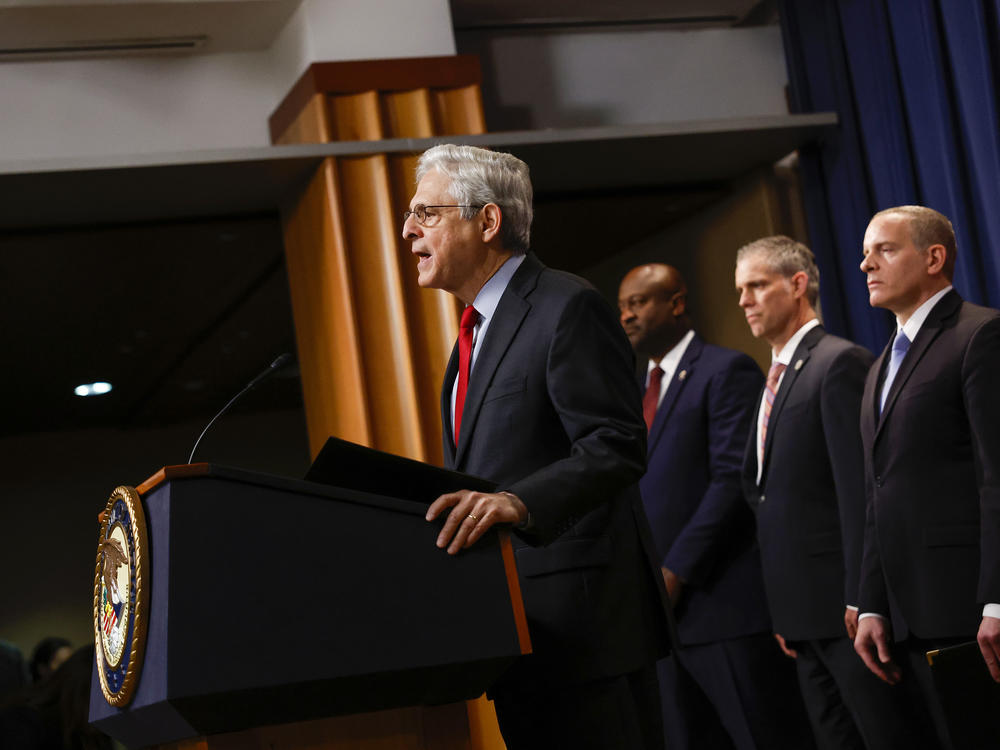Section Branding
Header Content
Record number of people arrested in an international fentanyl operation, DOJ says
Primary Content
The Department of Justice announced Tuesday it's made a record number of arrests and seizures in a coordinated international effort to target fentanyl and opioid sales on the dark web.
The operation, called SpecTor, began in October 2021 and spanned the United States, Europe and South America. Across the U.S. and eight other countries, authorities arrested 288 people. They seized 85 kilograms of drugs, 117 firearms and $53 million in cash and online currencies.
"Our message to criminals on the dark web is this: You can try to hide in the furthest reaches of the internet, but the Justice Department will find you and hold you accountable for your crimes," Attorney General Merrick Garland said at a press conference Tuesday.
Garland said drug traffickers turn to the dark web to sell illegal drugs in exchange for cryptocurrency. The drugs may be advertised as brand-name pharmaceuticals but the pills can be counterfeit and laced with fentanyl.
The operation, which was led by the department's Joint Criminal Opioid and Darknet Enforcement (JCODE) team, involved other agencies such as the FBI, Drug Enforcement Administration, Bureau of Alcohol, Tobacco and Firearms and 30 U.S. attorneys' offices.
In the U.S. alone, 153 people were arrested. Authorities seized 104 illegal guns and over 200,000 pills, including ones containing fentanyl, the DOJ said.
The actions from the DOJ are the latest in the department's efforts to crack down on the fentanyl crisis and drug trafficking on the dark web.
Last month, officials said they identified and infiltrated the Mexican drug organization known as the Sinaloa drug cartel, which the DOJ says is largely responsible for the fentanyl crisis killing tens of thousands of Americans every year.
In 2021, an international effort from the DOJ called Operation DarkHunTor involved the arrests of 150 drug traffickers working on the dark web and the seizure of $32 million in cash and cryptocurrencies.
Copyright 2023 NPR. To see more, visit https://www.npr.org.

